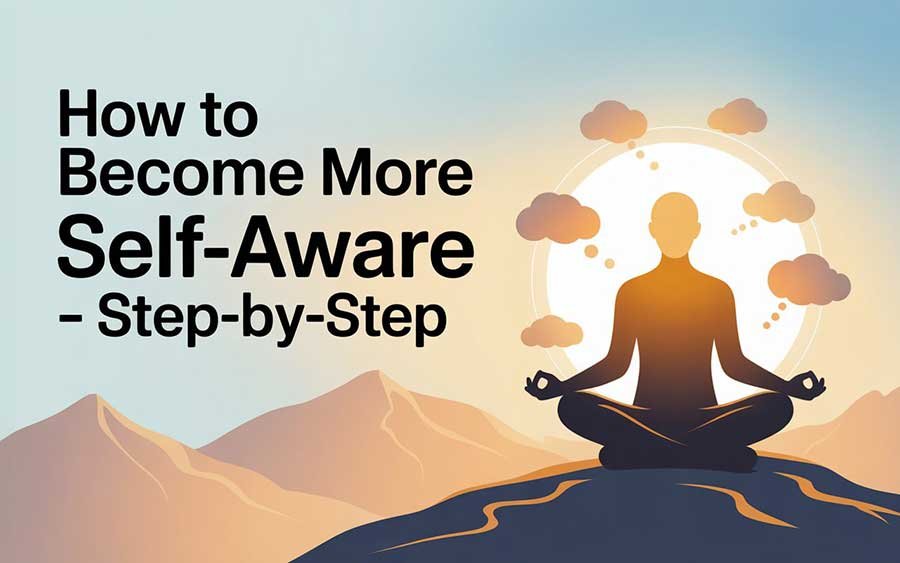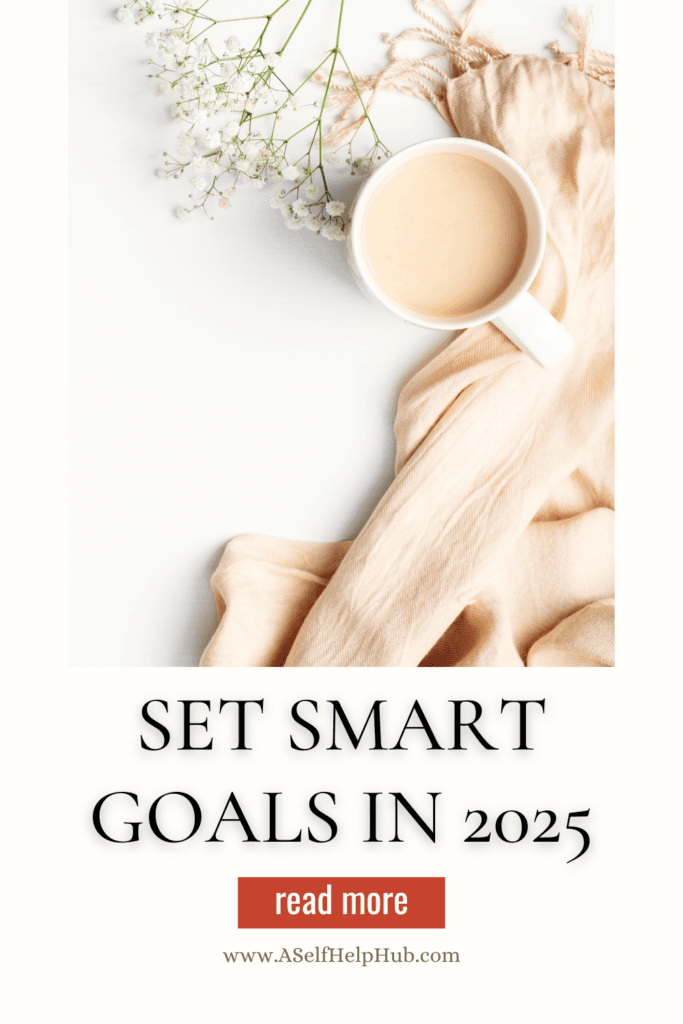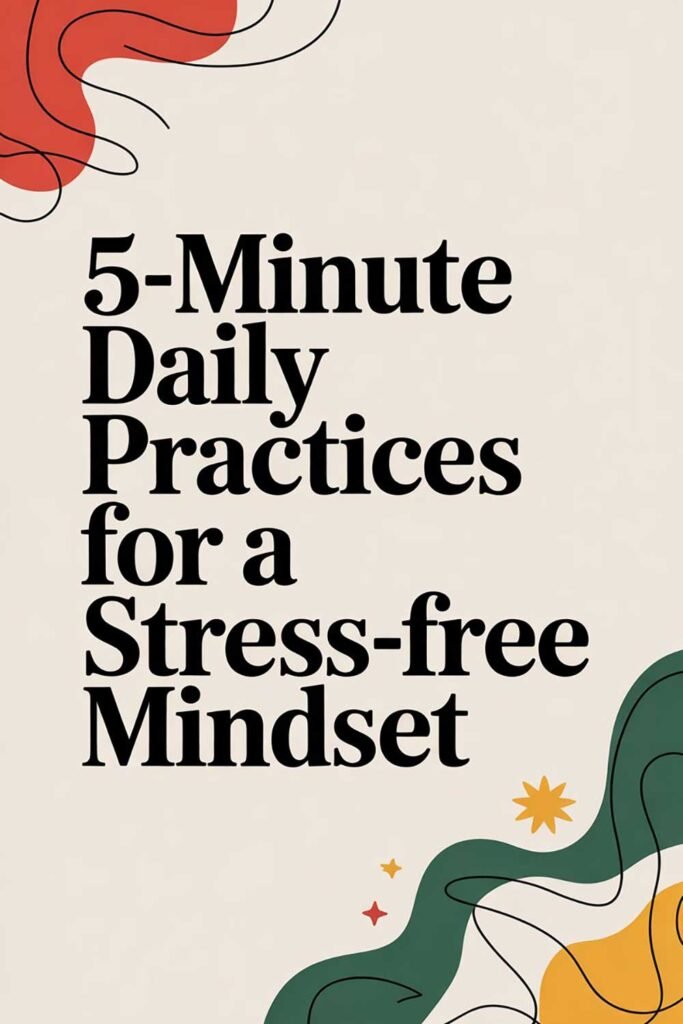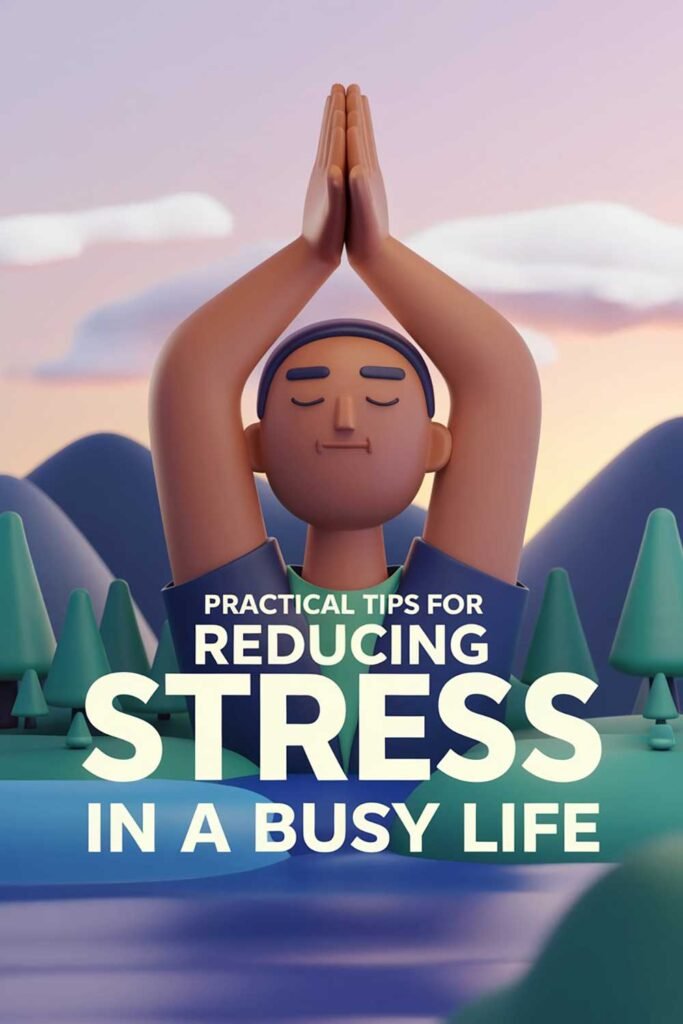
Beyond the Surface: How to Become More Self-Aware – Your Step-by-Step Guide to True Understanding
Have you ever found yourself reacting in a way you later regretted, but couldn’t quite pinpoint why? Or felt a persistent sense of unease or unfulfillment, without truly understanding its root cause? In the whirlwind of modern life, it’s incredibly easy to go through our days on autopilot, driven by unconscious habits, societal expectations, and automatic reactions. We move from one task to the next, one interaction to the next, often without pausing to truly understand the inner workings of our own minds, emotions, and behaviors.
CLICK THE IMAGE BELOW
TO VIEW THIS MUG AT OUR STORE
OR VISIT OUR STORE TODAY!

For a long time, I lived largely unaware of my own internal landscape. My emotions felt like fleeting gusts of wind, my reactions like unpredictable impulses. I often wondered why I kept repeating the same mistakes, why certain situations triggered intense feelings, or why I struggled to articulate my true needs. This lack of self-awareness left me feeling disconnected from myself, prone to overthinking, and often at the mercy of external circumstances. It was like driving a car without a dashboard, constantly guessing at my speed, fuel, and engine health.
Then, a profound realization dawned: the key to navigating life with greater intention, peace, and effectiveness lay in cultivating self-awareness. This isn’t some mystical, elusive trait; it’s a learnable skill, a conscious practice of observing your inner world without judgment. It’s the ability to understand your thoughts, emotions, behaviors, strengths, weaknesses, and motivations as they happen. Once I committed to this journey, my life began to transform. Decisions became clearer, relationships deepened, emotional regulation improved, and a profound sense of inner peace replaced much of my anxiety.
This comprehensive guide is designed to demystify self-awareness and provide you with a powerful, step-by-step blueprint to cultivate it in your own life. We’ll explore practical exercises, real-life examples, and simple daily habits that will help you peel back the layers and truly get to know the magnificent person you are. Get ready to embark on the most important journey of your life: the journey within.
CLICK THE IMAGE BELOW
TO VIEW THIS MUG AT OUR STORE
OR VISIT OUR STORE TODAY!

Why Cultivating Self-Awareness is Your Most Powerful Investment
Self-awareness is not just a soft skill; it’s the foundational skill upon which all other personal growth and success are built. Here’s why it’s incredibly vital:
- Improved Decision-Making: When you understand your true motivations, values, and biases, you make choices that are more aligned with your authentic self and long-term goals.
- Enhanced Emotional Regulation: Knowing what you’re feeling and why allows you to manage your emotions more effectively, rather than being controlled by them.
- Stronger Relationships: Self-aware individuals understand their own triggers, communication styles, and needs, leading to more empathetic, honest, and healthy interactions with others.
- Greater Authenticity: Living in alignment with your true self reduces internal conflict and fosters a deep sense of integrity and peace.
- Increased Resilience: Understanding your strengths and weaknesses allows you to build upon the former and proactively address the latter, making you more adaptable to challenges.
- Breaks Self-Sabotaging Patterns: Self-awareness is the first step to identifying and changing how to identify self-sabotaging behaviors that hold you back.
- Boosts Well-being: A deeper understanding of yourself leads to greater self-acceptance, compassion, and overall mental and emotional health. This is a core reason why you should prioritize 7 reasons why you should prioritize self-care in your daily life.
Self-awareness is essentially having a clear, unbiased picture of who you are. It’s a key component of many unconventional self-help topics that drive profound transformation.
CLICK THE IMAGE BELOW
TO VIEW THIS MUG AT OUR STORE
OR VISIT OUR STORE TODAY!

Your Step-by-Step Guide to Becoming More Self-Aware
This journey is ongoing, but these steps provide a powerful framework for consistent growth.
Step 1: Practice Mindful Observation (The “Witness” Exercise)
This is the bedrock of self-awareness: learning to observe your thoughts, emotions, and bodily sensations without immediate judgment or reaction.
- Start with Short Bursts: Begin with just 5-10 minutes a day. Find a quiet space.
- Focus on Your Breath: Use your breath as an anchor.
- Notice What Arises: As thoughts, feelings, or sensations come up, simply notice them. Don’t engage, don’t analyze, don’t judge. Just observe. “I notice a thought about my to-do list.” “I feel a tightness in my chest.” “I’m thinking about what someone said earlier.”
- Return to the Breath: When your mind wanders (and it will!), gently bring your attention back to your breath.
- Daily Check-in: Throughout your day, take brief “mindfulness breaks.” Before responding to an email, before reacting to a comment, pause and simply notice your internal state.
Why it works: This practice creates a crucial space between stimulus and response. It helps you see your inner workings as separate from your essential self, giving you the power to choose your reaction rather than being driven by autopilot.
Real-Life Example: Sarah, a notoriously quick-tempered individual, started practicing mindful observation for five minutes each morning. She realized how often her anger was triggered by minor inconveniences (e.g., slow internet). By simply noticing the initial surge of irritation, she gained a split second of choice. Instead of lashing out, she might take a deep breath or label the emotion, “Ah, frustration.” This small pause, developed through observation, dramatically reduced her impulsive reactions over time.
Step 2: Journaling with Prompts (Unlocking Deeper Insights)
Journaling is a powerful tool for externalizing your internal world, allowing you to examine it more objectively.
- Make it a Habit: Dedicate 10-15 minutes each day or a few times a week to journaling.
- Use Specific Prompts: Instead of just free-writing, use targeted questions to guide your self-exploration:
- “What emotion did I feel most strongly today, and what triggered it?”
- “What was a challenging situation I faced today, and how did I react? How would I prefer to react next time?”
- “What drained my energy today? What energized me?”
- “What did I achieve today that I’m proud of, no matter how small?”
- “What limiting belief did I notice today?”
- “What truly brings me joy?”
- Re-read Your Entries: Periodically, re-read past entries. You’ll often discover patterns, recurring themes, and insights you missed in the moment.
Why it works: Journaling provides a tangible record of your thoughts and emotions, helping you identify patterns, triggers, and core beliefs that operate beneath the surface.
Real-Life Example: Mark, who often felt a vague sense of dissatisfaction, started journaling daily. He used prompts like “What drained my energy today?” Consistently, he noted that long, unproductive meetings and trying to please everyone exhausted him. Conversely, deep, focused work and saying “no” to extra commitments energized him. This insight led him to re-evaluate his work boundaries and prioritize tasks that truly aligned with his strengths, boosting his overall satisfaction.
Step 3: Seek and Welcome Feedback (The External Mirror)
While self-awareness is internal, sometimes others see us more clearly than we see ourselves.
- Ask Trusted Individuals: Approach a few close friends, family members, or colleagues whom you trust to be honest and constructive.
- Ask Specific Questions: Instead of “What do you think of me?”, ask targeted questions:
- “When do you see me at my best?”
- “What’s one area you think I could improve in, and why?”
- “How do I come across when I’m stressed/happy/frustrated?”
- “What’s one of my blind spots?”
- Listen Without Defensiveness: This is the hardest part. Remind yourself that feedback is a gift, an opportunity for growth. Listen actively, thank them, and take time to process it before reacting.
Why it works: External feedback provides invaluable data points, revealing how your intentions translate into actual impact. It can highlight blind spots you’d never see on your own.
Real-Life Example: Jessica often felt like she was a good listener, but her colleague gently pointed out that in group settings, she tended to interrupt. Jessica was initially surprised but chose to listen. By intentionally observing herself in future meetings, she realized her colleague was right. This feedback, though initially uncomfortable, helped her become a more mindful communicator and a better team player.
Step 4: Pay Attention to Your Body (The Somatic Connection)
Our emotions and thoughts don’t just reside in our heads; they manifest in our bodies. Learning to read your body’s signals is a powerful pathway to self-awareness.
- Notice Physical Sensations: When you feel a strong emotion, where do you feel it in your body? (e.g., tension in shoulders for stress, butterflies in stomach for anxiety, warmth in chest for joy).
- Track Energy Levels: When do you feel most energized? When do you feel drained? What activities, people, or environments impact your energy?
- Listen to Your “Gut Feelings”: Often, our intuition manifests as a physical sensation. Learn to trust these subtle signals.
Why it works: Your body is constantly providing feedback. Tuning into these somatic signals can give you immediate insight into your emotional state and what you truly need. These practices also align with 30 simple self-care rituals that take less than 10 minutes.
Real-Life Example: Tom often dismissed his chronic headaches as just “stress.” Through consistent body awareness, he realized they almost always flared up after particular, high-pressure client meetings. This insight led him to implement specific de-stressing rituals after those meetings (a short walk, deep breathing) and eventually to re-negotiate his meeting schedule, preventing the headaches rather than just reacting to them.
Step 5: Reflect on Your Values and Purpose (The Guiding Principles)
Self-awareness isn’t just about what is; it’s about what matters. Understanding your core values helps you align your life with your deepest self.
- What Truly Matters to You? Beyond external expectations, what principles do you refuse to compromise on? (e.g., Integrity, Growth, Connection, Contribution, Freedom, Creativity).
- How Do Your Actions Align? Are your daily choices and long-term goals in sync with these values?
- What’s Your “Why”? What motivates you at a fundamental level? What kind of impact do you want to have?
Why it works: When you understand your core values, your decision-making becomes clearer, and you feel a deeper sense of authenticity and purpose.
Real-Life Example: When Lisa felt a persistent sense of unease despite her success, she consciously identified “Contribution” as a core value. She realized her demanding job, while financially rewarding, didn’t allow her to contribute to her community in a way that resonated. This self-awareness led her to volunteer for a local non-profit, which, though unpaid, brought her immense fulfillment and alignment.
Making Self-Awareness a Daily Practice: Consistency is Key
- Start Small, Be Consistent: Dedicate just 5-10 minutes a day to one of these practices. Consistency is more important than intensity.
- Be Patient and Non-Judgmental: This is a journey, not a destination. There will be days you feel more aware than others. Don’t criticize yourself.
- Embrace Curiosity: Approach your inner world with the curiosity of a scientist, not the harshness of a judge.
- Integrate into Routine: Link these practices to existing daily habits (e.g., “After my morning coffee, I’ll journal for 10 minutes”).
Picture This…
Imagine moving through your day with a quiet confidence. When a challenging situation arises, you recognize your immediate emotional response, understand its trigger, and calmly choose your next action rather than reacting impulsively. You navigate conversations with clarity, knowing your own needs and boundaries. You make decisions that feel deeply right because they align with your authentic values. The internal chatter quiets, replaced by a deep, resonant understanding of who you are, what you stand for, and what truly brings you peace. This isn’t just about insight; it’s about living a life of profound authenticity, purpose, and unshakeable inner calm.
20 Powerful Quotes on Self-Awareness
- “The unexamined life is not worth living.” – Socrates
- “Know thyself.” – Socrates
- “Self-awareness is the ability to monitor our inner world, our thoughts, emotions, and behaviors. It is the core of emotional intelligence.” – Daniel Goleman
- “What lies behind us and what lies before us are tiny matters compared to what lies within us.” – Ralph Waldo Emerson
- “The more you know yourself, the more clarity there is. Self-knowledge is the beginning of wisdom.” – Jiddu Krishnamurti
- “Your vision will become clear only when you can look into your own heart. Who looks outside, dreams; who looks inside, awakes.” – Carl Jung
- “To be yourself in a world that is constantly trying to make you something else is the greatest accomplishment.” – Ralph Waldo Emerson
- “Growth begins when we begin to accept our own weakness.” – Jean Vanier
- “Emotional intelligence is knowing your own feelings and using them to make good decisions.” – Unknown
- “The deepest secret is that life is not a process of discovery, but a process of creation.” – Neale Donald Walsch
- “You are the only person on earth who can use your ability.” – Zig Ziglar (Requires self-awareness to know that ability).
- “Until you make the unconscious conscious, it will direct your life and you will call it fate.” – Carl Jung
- “The quieter you become, the more you can hear.” – Ram Dass
- “Self-awareness is not just about what you think of yourself. It’s also about what you don’t think of yourself.” – Tasha Eurich
- “The privilege of a lifetime is to become who you truly are.” – Carl Jung
- “Know your strengths, know your weaknesses. Use your strengths, improve your weaknesses.” – Unknown
- “Every experience, good or bad, is a step towards self-realization.” – Unknown
- “Being self-aware is the first step to personal mastery.” – Unknown
- “Peace of mind comes from not wanting to change others, but changing yourself.” – Joseph M. Marshall III
- “If you do not change direction, you may end up where you are heading.” – Lao Tzu (Self-awareness helps you choose your direction).
Disclaimer
Please note: This article is for informational purposes only and is based on general self-help principles, philosophical concepts, and anecdotal experiences. The journey of self-awareness is deeply personal and may uncover complex emotions or psychological patterns. This content is not a substitute for professional psychological counseling, therapy, or medical advice. If you are struggling with significant emotional distress, mental health concerns, or trauma, please consult with a qualified mental health professional. Individual results from adopting these practices may vary.
Share This Article!
Has this guide inspired you to embark on your own journey of self-awareness? If so, please share it with friends, family, or on your social media! Let’s empower more people to truly understand themselves and live a life of greater authenticity and peace.






